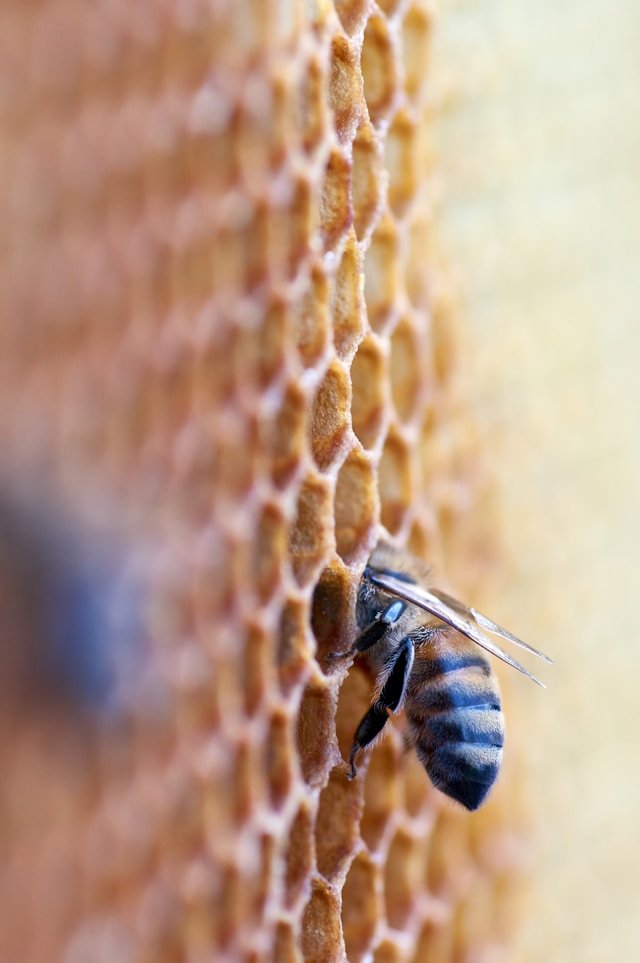The top ten fears in America: Chapman University finds, “The top 10 fears in the 2023 survey suggest that Americans’ fears center on five main topics: corruption in government (number 1), economic concerns (numbers 2 & 10), war and terror (numbers 3, 4, 8, & 9), the harming or death of loved ones (numbers 4 & 5), and pollution of drinking water (number 7).”
As the outer is peeled away: Tim Challies reflects, “In the past few years, I have watched a number of dear friends grapple with terrible and ultimately terminal illnesses. I have watched people I only ever knew to be whole and strong fade until they were broken and weak.
A Persecuted, but Thriving Church
We just returned from two weeks in southern India. Down is still up and up is still down. And I’m not just talking about jet lag (although that is very real, too). India is a country that is not only physically distant, but also spiritually distant. That is both a hard thing and a good thing.
India is one of the most antagonistic nations on earth toward Christians. In Open Doors’ recently published World Watch list, India is listed as the 11th most persecuted nation on earth for Christians, including a 99% rating for violence.
This Week's Recommendations
Preparing children to suffer well: Curtis Solomon with an excellent article. This is a must-read for any parent or grandparent. “We don’t have to wait until trauma strikes to prepare the hearts of our children to face the most intense forms of suffering. There is no way to completely protect our children from suffering in this world, and we can’t guarantee they won’t face lasting challenges from traumatic experiences, but the following measures can help our children be prepared to respond well to suffering.”
Let suffering lead to gentleness, not bitterness: Lara D’Entremont in a similar vein, “Gentle people aren’t gentle because they simply bottled all their frustration and anger inside. A gentle spirit isn’t cultivated through gritted teeth, clenched fists, and a strained smile. Gentleness grows in a heart set on this truth: the Lord is near (Phil. 4:5b)”
Grieving Over the Holidays
Was there an empty seat at your table this Thanksgiving?
This has been a hard stretch for our New Life family. Several church members have recently passed away over the last several weeks. In addition, several more have lost friends and family members.
Loss comes unbidden and with it arrives grief.
Grief is difficult during any season, but the holidays have a way of stoking the embers of grief.
How do you survive grieving the death of a loved one? There is no recipe, no quick fixes. You will need the presence of God, the comfort of community, and time. David promises that, “The Lord is near to the brokenhearted and saves the crushed in spirit” (Psalm 34:18). God’s goodness and grace don’t stop there: God heals the brokenhearted and those crushed in spirit.
This Week's Recommendations
Thankfulness (and other habits): Marli Scarborough says our gratitude is tied to our identity, “So when [Paul] says “don’t BE anxious,” he’s not saying “don’t FEEL anxious,” or “don’t have anxiety.” He’s saying that anxiety doesn’t have to be your identity. Your identity is in Christ. Joy and gentleness and peace are already yours for the taking.”
Before you gather, mourn your sin: Paul Tripp offers a surprising recommendation for how to make your Thanksgiving special. He begins, “Blessed are those who mourn, for they shall be comforted” (Matt. 5:4). We don’t tend to like to be sad. We hate bad news. We work to avoid problems. We apologize when we cry in public. Being depressed scares us. In our avoidance of sadness, we often numb ourselves to death with endless social media fluff and vacuous Netflix entertainment.”
This Week's Recommendations
Finding contentment in a world of want: Lara d’Entremont is always excellent. She explains, “We miss the mark on this, however, when we seek the virtue of contentment only through positive thinking and gratitude lists. Yes, we should be grateful for all God gives us, but we mustn’t ground our contentment in what fails, fades, or falters. Contentment takes our sights off ourselves and our possessions and focuses on Christ.”
How to pray for a loved one struggling with a mental illness: David Murray concludes this wise article, “For the believer, mental illness can be like a little taste of hell on earth. As such, it can help us to see the horrors of the hell we have been saved from, as well as to long for the health and holiness of heaven, the place where all our diseases and disorders of mind, emotions, and soul will be immediately and fully healed upon entry—a healing our bodies will also fully participate in after the resurrection.”
This Week's Recommendations
‘Bothsideism’ about Hamas is moral failure: Russell Moore offers clarity on the horrifying atrocity in Israel. He begins, “Sometimes certain moments in history reveal in minutes what was concealed for decades. And sometimes those moments of revelation come with hearing oneself say the words, “Yes, but …” or “But what about …” The aftermath of the Hamas terrorist attack on Israel is not one of those times. In this case, saying who is to blame—and who is not—is not factually or morally difficult at all.”
The baobab: the strangest tree on earth: Have you ever seen one in person? They’re wild. Don Batten and Jerry Bergman share, “They are among Earth’s longest-lived flowering plants, and under normal conditions can grow for over 1,000 years. One baobab was estimated to have lived for 2,600 years. They grow to over 22 metres (75 feet) tall, with a trunk circumference that can exceed 26 m (85 ft).”
As Jesus sleeps: Ed Welch encourages us, “There are, it seems, reasons to worry. Some of his disciples would live homeless and hand-to-mouth. To be penniless is as dangerous as a severe storm. But our God does not worry. His face toward you reveals his rest and favor. During the turbulence of life, his face also reveals his compassion and care.”
On the other side of a church split: Abigail Rehmert, a pastor’s wife, shares, “The heartbreaking drama of the last year beckoned my heart toward resentment, bitterness, and pride. I have been reminded that each day, I must inspect my heart and eyes for the planks that lodge there.”
Every state’s most popular Halloween candy: This is a pretty fun list. Arizona is Hershey Kisses… go figure.
Clone-a-lisa: Need a silly diversion that puts your art skills to the test? Vole has you covered.
This Week's Recommendations
If you use any of these 9 phrases every day, ‘you’re more emotionally secure than most’: 8 of Dr. Cortney Warren’s list of 9 are excellent (I’ll let you spot which one is problematic). Here are two good ones:“Let me think about that before I respond,” and “Am I like that?”
Christian unity is deeper than ‘getting along’: Trevin Wax reflects on the riches of Jesus’ prayer in John 17, “Jesus wants his followers to be one as a way of participating in the oneness of the triune God.”
Social media is causing our children to suffer: Joe Carter reports, “The U.S. surgeon general, Vivek Murthy, has issued a warning about the potential risks of social media on children’s mental health. Here’s why Christian parents should be concerned—and what we can do to protect our kids.”
Gospel-shaped leaders communicate with grace-filled candor: Scott Thomas’s visual is helpful in considering how to move toward Christ-honoring communication. He says, “The goal of grace-filled candor is to find a solution to the conflict while deepening relationships with others.”
The most common dad joke in each US state: This is pretty great. Although, I cry foul on a bunch of aphorisms masquerading as supposed “jokes.” Pennsylvania takes the cake as the most prolific dad-joking state with Oregon and Mississippi taking a strong anti-dad-joke stand.
This Week's Recommendations
The shriveling of the American soul: Trevin Wax comments on an alarming report“In 1998, 70 percent of respondents said patriotism was very important and 62 percent said the same about religion. Today, it’s only 38 percent and 39 percent. Having children? A drop from 59 percent to 30 percent. What about community involvement? From 62 percent to 27 percent.”
With the wild animals: Mitch Case ponders why Mark tells us that Jesus was with the wild animals in the wilderness. “Jesus is among the beasts and the Ancient Serpent himself. But the wilderness will not dominate the Son of David. Jesus is the Last Adam, and he enters the wilderness with the power to subdue and renew.”
The God who knows: Tim Challies encourages us, “We are so weak. Life is so hard. Our enemies are so vicious. But God is so good. For it’s to weak people, not strong or self-sufficient people, that the Bible assures us that Jesus knows. He knows the facts of your weaknesses, and even better, he knows the experience of your weaknesses.”
A gentle reminder: Anne Imboden on the power of gentleness, “When we are tempted to react rather than respond, let’s remember that relationships and the hearts they embody are fragile. Tenderness is key to their protection.”
Most churchgoers say they want to serve, fewer actually do: Marissa Postell Sullivan shares a data from a sobering survey, “Despite saying they want to serve people who are not a part of their church, few churchgoers are even serving within the context of their own churches. Two in 3 (66%) churchgoers say they have not volunteered for a charity (ministry, church or non-ministry) in the previous year.”
This Week's Recommendations
Why pineapples used to cost $8,000: Suzanne Raga with the intriguing history of pineapples, which were considered so luxurious and exotic at one time they were rented. She begins, “Though native to South America, pineapples (scientific name: Ananas comosus) made their way to the Caribbean island of Guadeloupe, and it was here that Christopher Columbus first spotted their spiky crowns in 1493. Columbus and his crew took pineapples back to Spain, where everyone loved how sweet this new, exotic fruit tasted.”
A normal life includes a great deal of suffering: Alan Noble asks us to consider, “Think about someone you know who is living the good life: someone well dressed, confident, smiling, high achieving, maybe even attractive and intelligent and funny. Nine times out of ten, they are carrying around something unspeakably painful. And often, when you learn what that pain is, it’ll be something completely unexpected. You weren’t even aware that people could suffer like that.”
Standing on the shoulder of nobodies: Brianna Lambert considers the humble fiddler crab and concludes, “It’s true, our hard work may still feel small and forgotten. To the world it may look inconsequential like those tiny fiddler crabs. But we know our lives are not singular. We know that God has linked our small acts of service to an immensely valuable mission.”
14 facts about biblical life: Here is one, “Balm is a kind of resin taken from trees by cutting the bark. People used it as a perfume. And the community also considered it a medicine (Jer. 51:8). Although Gilead is mentioned together with balm (Jer. 8:22; 46:11), the substance was not produced in Gilead.”
We are defined not by our failures, but by Christ’s victory: Jen Oshman tells the amazing story of a forgotten missionary couple. What appeared to be the end of the story was this (but it was far from the end!): “It’s not totally clear what happened, but records show that after 17 years Dr. Leslie and his wife were asked by local tribal leaders to leave. There had been some kind of falling out and they were no longer welcome in or around Vanga. The Leslies abandoned their mission outpost and returned to the U.S. defeated—believing they had failed.”














